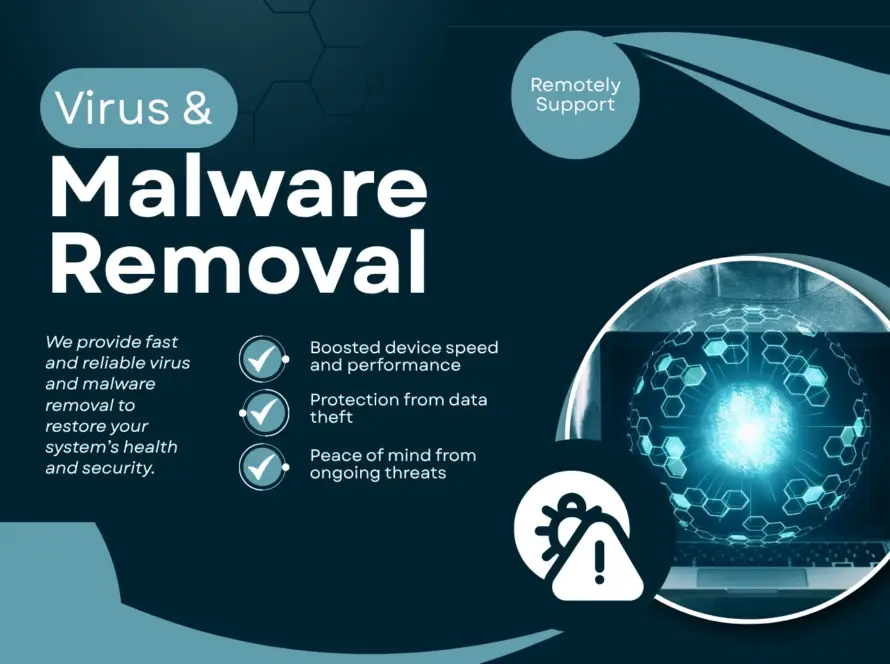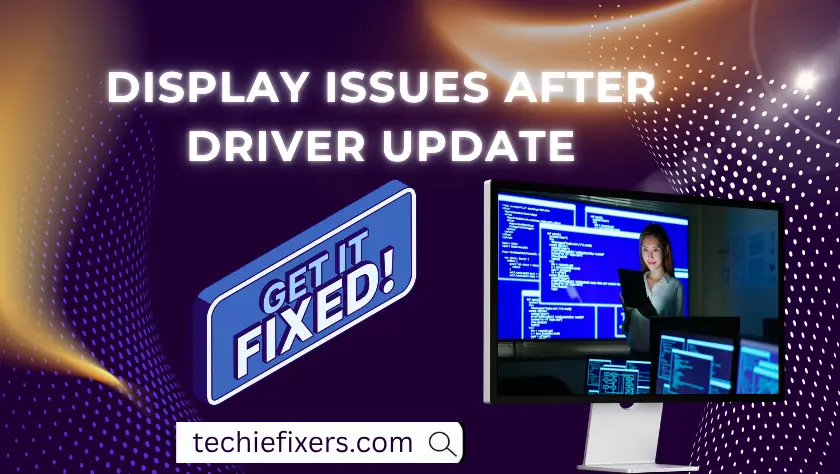We all rely on antivirus software to stay protected from viruses, malware, ransomware, and phishing threats. But what happens when that very security program starts to slow down your PC? If your computer has become sluggish lately even with no visible infections your antivirus could be the reason.
This guide breaks down why antivirus programs can cause performance issues and how to fix them without compromising your device’s security. With expert solutions and easy-to-follow steps, you can speed up your system and still stay protected.
Why Antivirus Software Slows Down Your Computer

Constant Background Scans
Most antivirus programs run background processes to offer real-time protection. These scans check every file you open, download, or move. While necessary, they can eat up RAM and CPU especially on older or budget machines.
Heavy System Resource Usage
Premium antivirus tools offer features like VPN, password managers, firewalls, and sandboxing. Each feature demands memory and processing power, which may lead to a noticeable slowdown if your PC isn’t optimized.
Scheduled Full-System Scans
If your antivirus performs full system scans during working hours, it might be competing for system resources while you’re editing videos, browsing the web, or attending video calls.
Software Conflicts
Using more than one security suite or not uninstalling previous antivirus software properly can cause conflicts. This leads to lag, freezes, or even crashes.
How to Know If Antivirus Is the Cause
Before making changes, confirm that your antivirus is the problem.
- Check Task Manager (Windows: Ctrl+Shift+Esc). Look for the antivirus process consuming CPU or memory.
- Observe when the slowdown happens. Does it get worse during virus scans or startup?
- Use performance monitor tools. Some antivirus programs like Bitdefender and Norton include system performance monitoring use them to assess the load.
If antivirus is consistently at the top of resource usage, it’s time for action.
10 Expert Solutions to Fix Antivirus Slowing Down Your PC
Here are real solutions that improve speed without sacrificing security.
1. Switch to a Lightweight Antivirus Solution
Heavy-duty antivirus programs may be overkill if you have basic security needs. Consider switching to lighter but effective tools like:
- Microsoft Defender (built-in, efficient on Windows)
- Bitdefender Antivirus Free Edition
- Kaspersky Security Cloud (Free)
These options offer decent protection with low system impact.
Tip: Check AV-Test and AV-Comparatives websites for independent antivirus performance reviews.
2. Change Scan Scheduling Settings
Antivirus software often runs scans during peak hours by default.
To fix this:
- Open antivirus settings
- Find “Scheduled Scans” or “Scan Schedule”
- Set it to run during idle times (like midnight or weekends)
This keeps your work hours lag-free without skipping critical protection.
3. Disable Unnecessary Features
Modern antivirus tools are feature-rich but do you need them all?
Disable options like:
- VPN (if not using)
- Software Updater
- Browser extensions
- Safe banking mode (if you use third-party options)
Reducing features helps improve system performance.
4. Add Exclusions for Trusted Files
If you work with large files or development environments, your antivirus may scan them repeatedly.
To reduce this:
- Create exclusions for trusted folders, apps, or external drives
- Prevent real-time scanning of known safe locations
This prevents unnecessary scans and speeds up file access.
5. Update Antivirus to the Latest Version
Outdated antivirus programs may not be optimized for your OS.
- Visit the vendor’s website or auto-update via app settings
- Ensure your OS and drivers are also up to date
Newer versions usually consume fewer resources and offer better compatibility.
6. Limit Background Processes
Many antivirus tools allow you to limit their impact.
- Enable “Gaming Mode” or “Silent Mode” to reduce background activity
- Adjust performance settings in the antivirus dashboard to prioritize speed over detailed monitoring
This frees up memory for the apps you actually use.
7. Uninstall Conflicting Security Software
Having multiple antivirus programs running is a common cause of system lag.
- Uninstall older or unused antivirus tools via Control Panel
- Use official uninstall tools from antivirus vendors to remove leftover files
Examples include Norton Removal Tool, Avast Clear, and McAfee Removal Tool.
8. Upgrade Your System Hardware
Sometimes the real fix is a hardware upgrade.
- Replace your hard drive with a solid-state drive (SSD)
- Add more RAM (8GB is a good minimum for modern antivirus tools)
- Upgrade to a newer OS if your device supports it
These upgrades significantly improve how antivirus and other programs run.
9. Use a Dedicated Malware Removal Service
If you suspect your system is already compromised or poorly configured, expert help can make a difference.
Professional Malware Removal Services can:
- Detect and remove advanced threats
- Configure antivirus for better performance
- Repair registry and startup issues
- Offer live TechSupport for Software
This is ideal if you’re not comfortable troubleshooting technical problems yourself.
10. Consider Cloud-Based Antivirus Tools
Cloud antivirus tools perform heavy scanning on remote servers instead of your device.
Consider:
- Webroot SecureAnywhere
- Panda Dome Cloud
They are efficient and ideal for users with mid-range or older systems.
When to Replace Your Antivirus Completely
If your antivirus continues to slow down your PC despite optimizations, it may be time for a change.
Look for software that offers:
- Real-time protection with minimal CPU use
- Cloud scanning capabilities
- A simple, bloat-free interface
- Positive performance reviews from independent sources
Focus on protection, not unnecessary extras.
How Malware Removal Services Can Help You Stay Secure and Fast
If you’re unsure whether malware, configuration, or the antivirus itself is the problem, consider hiring expert services.
Professional Malware Removal Services can:
- Perform deep scans that go beyond standard antivirus capabilities
- Remove spyware, adware, or rootkits
- Provide ongoing TechSupport for Software issues
- Help you choose a better security suite for your system
This option is especially valuable for small businesses and remote workers.
Best Practices to Keep PC Fast and Protected
- Keep antivirus and OS updated
- Use built-in cleanup tools or apps like CCleaner
- Schedule scans during off-hours
- Avoid installing multiple security tools
- Only download software from trusted sources
- Use browser security extensions to block risky websites
With consistent habits and smart configurations, you can maintain both security and speed.
Conclusion: Keep Antivirus, Ditch the Lag
Antivirus software doesn’t have to slow down your computer. The key is choosing the right solution, adjusting your settings, and avoiding resource-heavy features you don’t use.
If you’re still struggling with a sluggish system, consider reaching out to professional Malware Removal Services or TechSupport for Software. They can tune your setup, remove hidden threats, and restore performance.
Never compromise your safety to gain speed get the best of both with the right approach.
FAQs About Antivirus Slowing Down PCs
Is antivirus supposed to slow down my computer?
Ans. Some minor impact is normal, but significant slowdowns indicate poor configuration or outdated software. Optimized tools don’t noticeably affect performance.
Can I use my PC without antivirus if it’s slowing me down?
Ans. No. Removing antivirus exposes you to malware, phishing, and ransomware. Instead, use a lighter antivirus or cloud-based option.
Which antivirus uses the least resources?
Ans. Microsoft Defender, Webroot SecureAnywhere, and Bitdefender Free Edition are among the most lightweight options.
How do I check if antivirus is causing the slowness?
Ans. Use Task Manager to see if your antivirus is consuming high CPU or memory. Observe performance during scan times or startup to confirm the cause.
Can I keep antivirus and still play games or edit videos smoothly?
Ans. Yes. Enable gaming mode, add exclusions, and schedule scans during off-hours to avoid interference with high-performance tasks.




